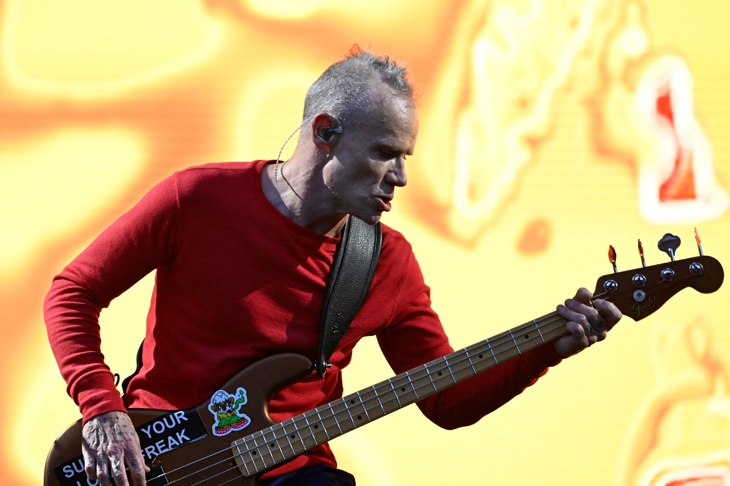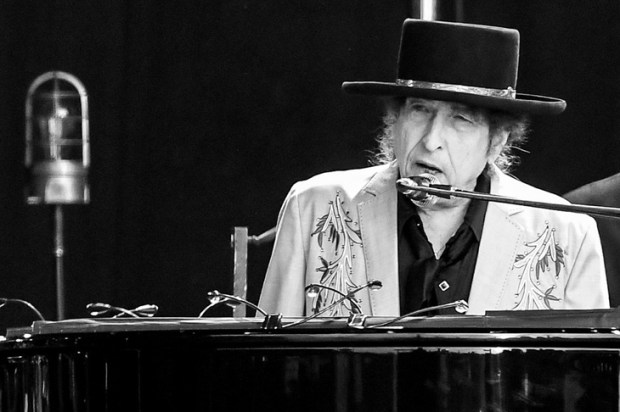I see Mr Ed Sheeran thinks that consulting rock critics makes about as much musical sense in 2023 as purchasing an ear trumpet. And really, given how the fans apparently can’t get enough of Sheeran’s work –the last tour to Australia and New Zealand by the guy with the just-woke-up hair, silly tattoos and pleasant tunes broke all previous records for ticket sales – this only appears to underscore the point he recently made to Rolling Stone.
‘Why do you need to read a review?’ the thirty-two-year-old harrumphed. ‘Listen to it. It’s freely available. Make up your own mind.’
As Sheeran sees it, the age of streaming has rendered critical gatekeepers superfluous to musical requirements. Long gone is the era where you marched into the large record stores in Sydney or Auckland to pick up the latest by the Go-Betweens or Kate Bush.
Rock’s central unit of consumption, the album, didn’t come cheap in those days. You needed to fork out up to sixty dollars in today’s currency to find out anything more. Scarcity was also an issue; albums usually didn’t remain ‘in print’ for terribly long and spending decisions had to be made relatively fast.
For cash-strapped younger people, and indeed anybody of modest means trying to put together a musical library, this old pricing structure clearly required a helping ear.
The guy who best offered one was probably the New York writer Robert Christgau. For more decades than the average music fan in 2023 has been alive, Christgau served as the chief music writer at the old Village Voice, grinding out combatively pithy, hipper-than-thou capsule reviews of the most notably good (and bad) latest releases in his monthly Consumer Guide column.
Here’s Christgau, for example, rendering judgment on the music of the Rolling Stones during the band’s finest hour: ‘Honking around sweet Virginia country and hipping through Slim Harpo, singing their ambiguous praises of Angela Davis, Jesus Christ, and the Butter Queen, they’re just war babies with the bell bottom blues.’
Or again on the teen-scented Kurt Cobain cavorting with the cheerleaders on the corkscrew video of his most-loved song: ‘Sloppy, malnourished, lank-haired, a self-proclaimed “negative creep” with beautiful eyes and a vocal attack that stylised adolescent angst as cannily as Billie Holiday’s stylised the sophisticated kind.’
And a little more recently on somebody called Edward Christopher Sheeran: ‘Unimaginably wealthy, songwriter to stars he outshines, he wants us to know that he hates parties and doesn’t much fancy the celebrity round either, [using] his fame and fortune to convince us how ordinary he is.’
In order to help readers with their spending decisions, the self-styled ‘dean of American rock critics’ awarded a letter grade (A to E) for each of the thousands of albums that made it to his turntable.
‘Hey, if you put a price on it, I can put a grade on it,’ Christgau once explained to me when I visited his record-lined walk-up apartment in the East Village. ‘If you’re out in public, so am I. And if you do not accept that then you’re in the wrong business.’
Others opted for an even loftier approach. In California, Greil Marcus began his critical life by publishing his own PhD thesis, Mystery Train: Images of America in Rock & Roll, an undeniably brainy, occasionally borderline incomprehensible tumble of rock crit meditations.
Around the same time in the UK, a new generation of rock and roll Leavisites also emerged into the London night. Publications like the New Musical Express had fabulously hip young gunslingers like Nick Kent, Paul Morley and my old friend Julie Burchill, who in turn influenced a younger generation of counterparts Down Under.
The old critical school was far from perfect, and made ghastly calls in its time, but was generally well-intentioned and made its mistakes out of a desire to set the entertainment world to rights. As Christgau also puts it, we were on the side of ‘the people’ who are being forever thwarted in their progress towards ‘authentic music’ by a conspiracy of ‘corporate reactionaries’.
Or at least that’s how it sometimes seemed to me at three in the morning on the fifth draft of why the punters simply had to buy the latest from Leonard ‘no relation’ Cohen.
But these days the subject of music is generally more of a professional base, something to fall back on when you’re writing about everything else under the sun.
Specific reviewing nowadays is more about thumbs up or thumbs down on YouTube. You count the ‘likes’ on Facebook. Check out fan pages and dedicated websites. For anyone under fifty, the notion of a solitary critic serving as a gatekeeper of popular taste is a bit… well, preposterous. Which is part of the reason, one supposes, that hardly any mainstream outlets now bother employing music provocateurs. Technology has something to do with it; straitened editorial budgets possibly a lot more.
But other factors are at play, too, none of which have much to do with free music libraries on Spotify.
In his recently published work The Nineties, a luminous study of the same decade, the American writer Chuck Klosterman convincingly argues that, unless truly cataclysmic events are breaking, the primary purpose of most media these days is offering emotional reassurance to their consumers.
Telling the punters what they may not want to hear is simply no longer the editorial style. Snark is to be abjured. And why not? Criticism could be bad for people’s mental health. Somebody may get triggered. Who’s to say that a reviewer rendering harsh judgment on the latest Billie Eilish recording might not be the final straw for some woke young sap? It could be as emotionally traumatic as hearing Dr Kathleen Stock speaking at the Oxford Union.
Obviously, there’s a bit of hyperbole in this, but it’s at least possible to see the eclipse of the rock critic in this context. And perhaps Ed Sheeran is dead right as well, perhaps it doesn’t really matter all that much in the case of music that’s now free for all.
Still, for any classical liberal who draws a haphazard line between criticism and democracy, whether in the context of robustly interrogating the merits of a new pop release or considering the weightier issues of the moment, it must seem like something has been lost along the way. Listen up, Mr Sheeran.
Got something to add? Join the discussion and comment below.
Get 10 issues for just $10
Subscribe to The Spectator Australia today for the next 10 magazine issues, plus full online access, for just $10.
You might disagree with half of it, but you’ll enjoy reading all of it. Try your first month for free, then just $2 a week for the remainder of your first year.















Comments
Don't miss out
Join the conversation with other Spectator Australia readers. Subscribe to leave a comment.
SUBSCRIBEAlready a subscriber? Log in